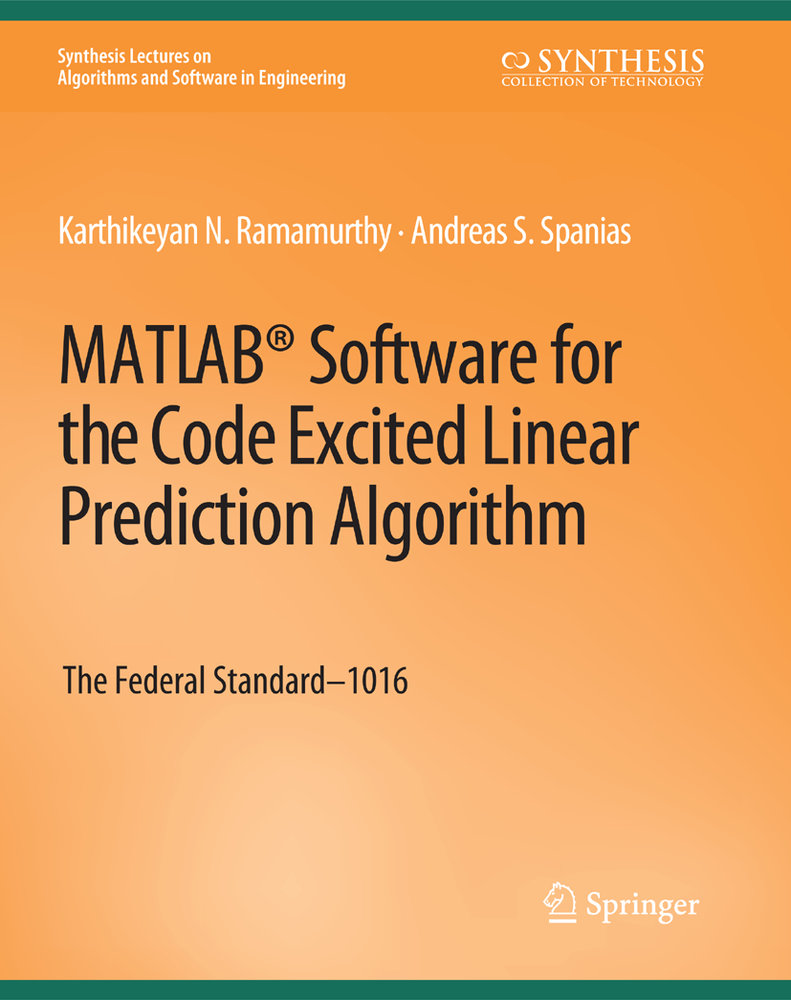This book describes several modules of the Code Excited Linear Prediction (CELP) algorithm. The authors use the Federal Standard-1016 CELP MATLAB® software to describe in detail several functions and parameter computations associated with analysis-by-synthesis linear prediction. The book begins with a description of the basics of linear prediction followed by an overview of the FS-1016 CELP algorithm. Subsequent chapters describe the various modules of the CELP algorithm in detail. In each chapter, an overall functional description of CELP modules is provided along with detailed illustrations of their MATLAB® implementation. Several code examples and plots are provided to highlight some of the key CELP concepts. Link to MATLAB® code found within the book Table of Contents: Introduction to Linear Predictive Coding / Autocorrelation Analysis and Linear Prediction / Line Spectral Frequency Computation / Spectral Distortion / The Codebook Search / The FS-1016 Decoder



